Customer Services
Copyright © 2025 Desertcart Holdings Limited
Desert Online General Trading LLC
Warehouse # 7, 4th Street, Umm Ramool, Dubai, 30183, Dubai
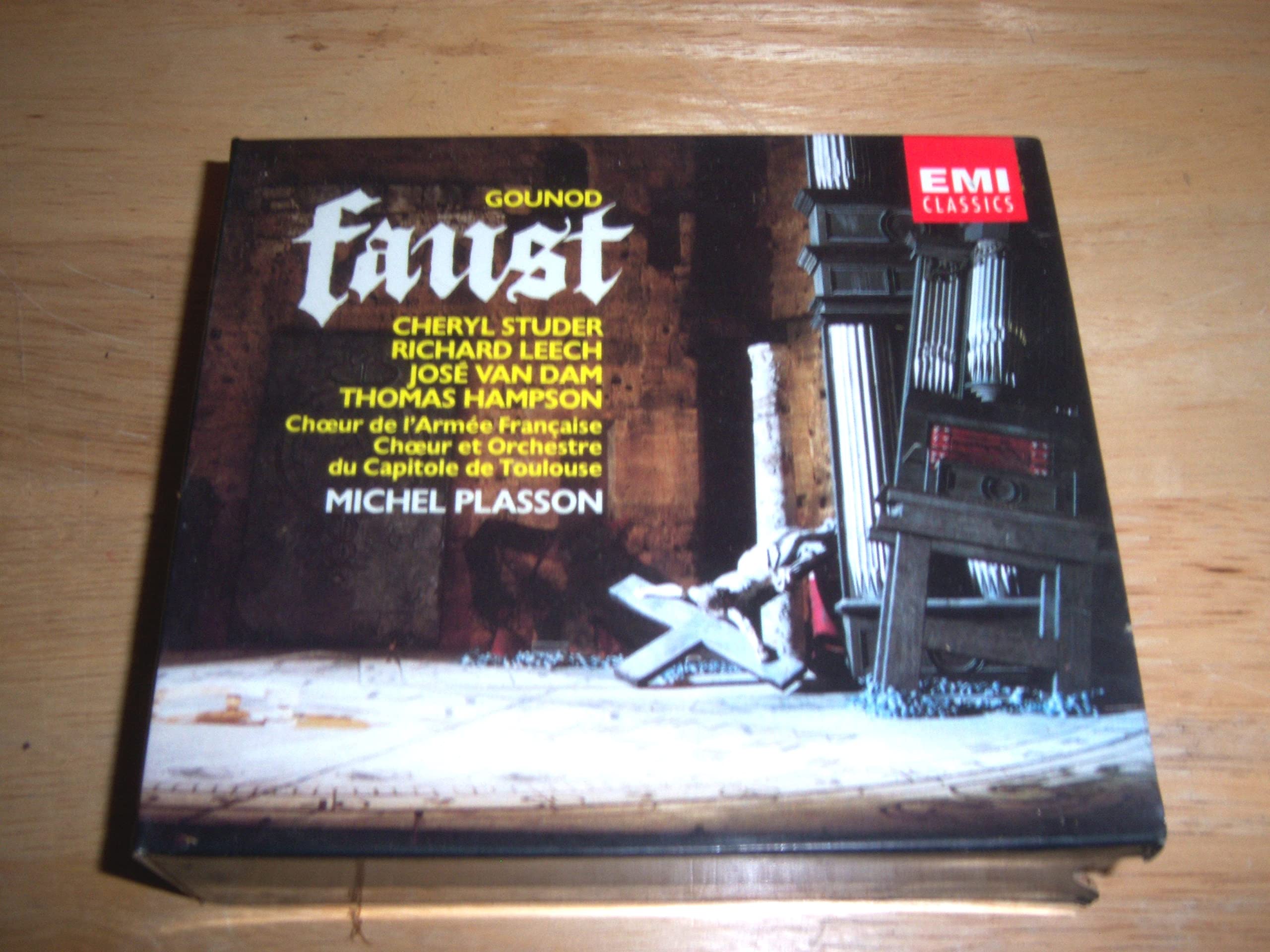

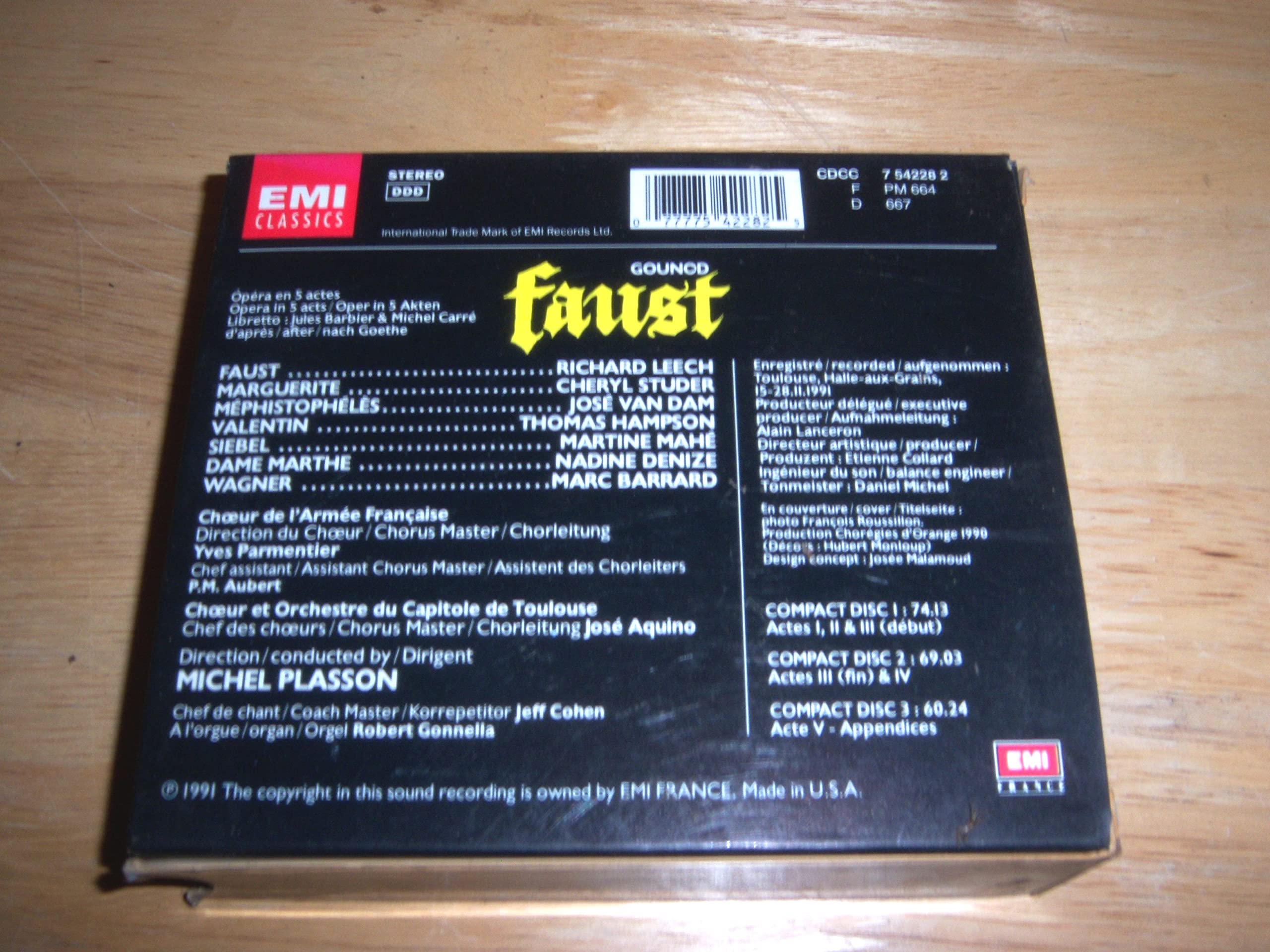
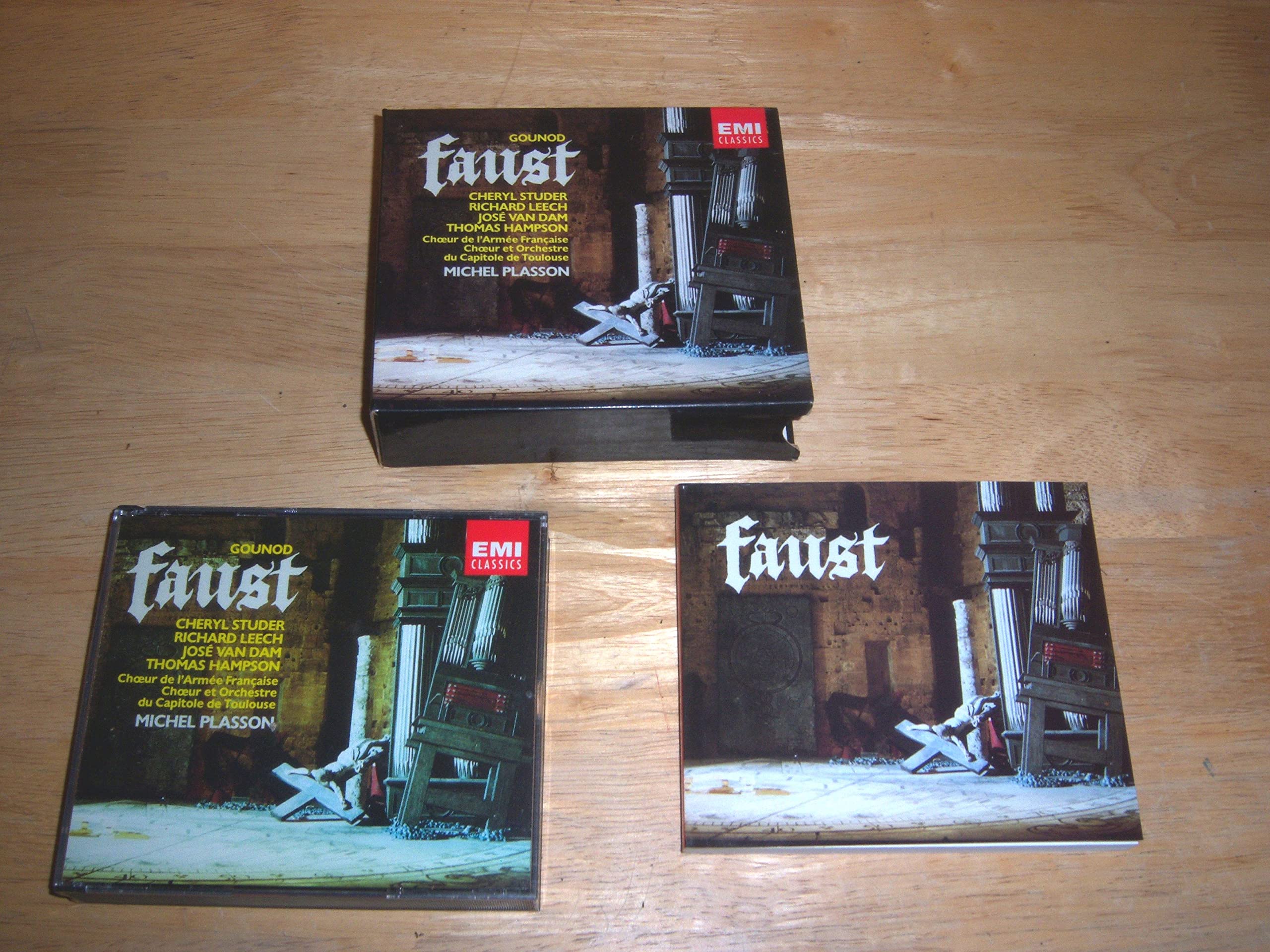
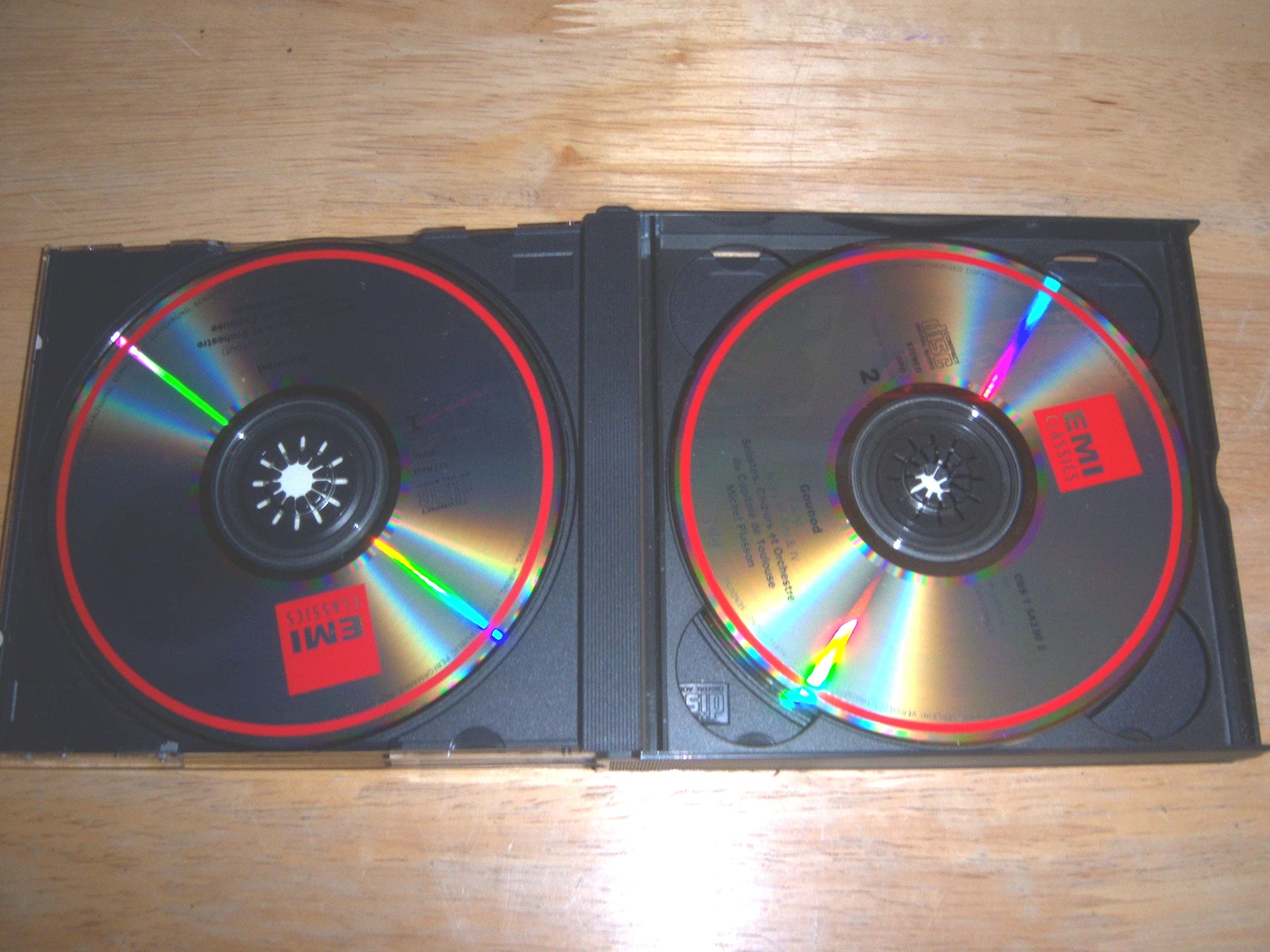
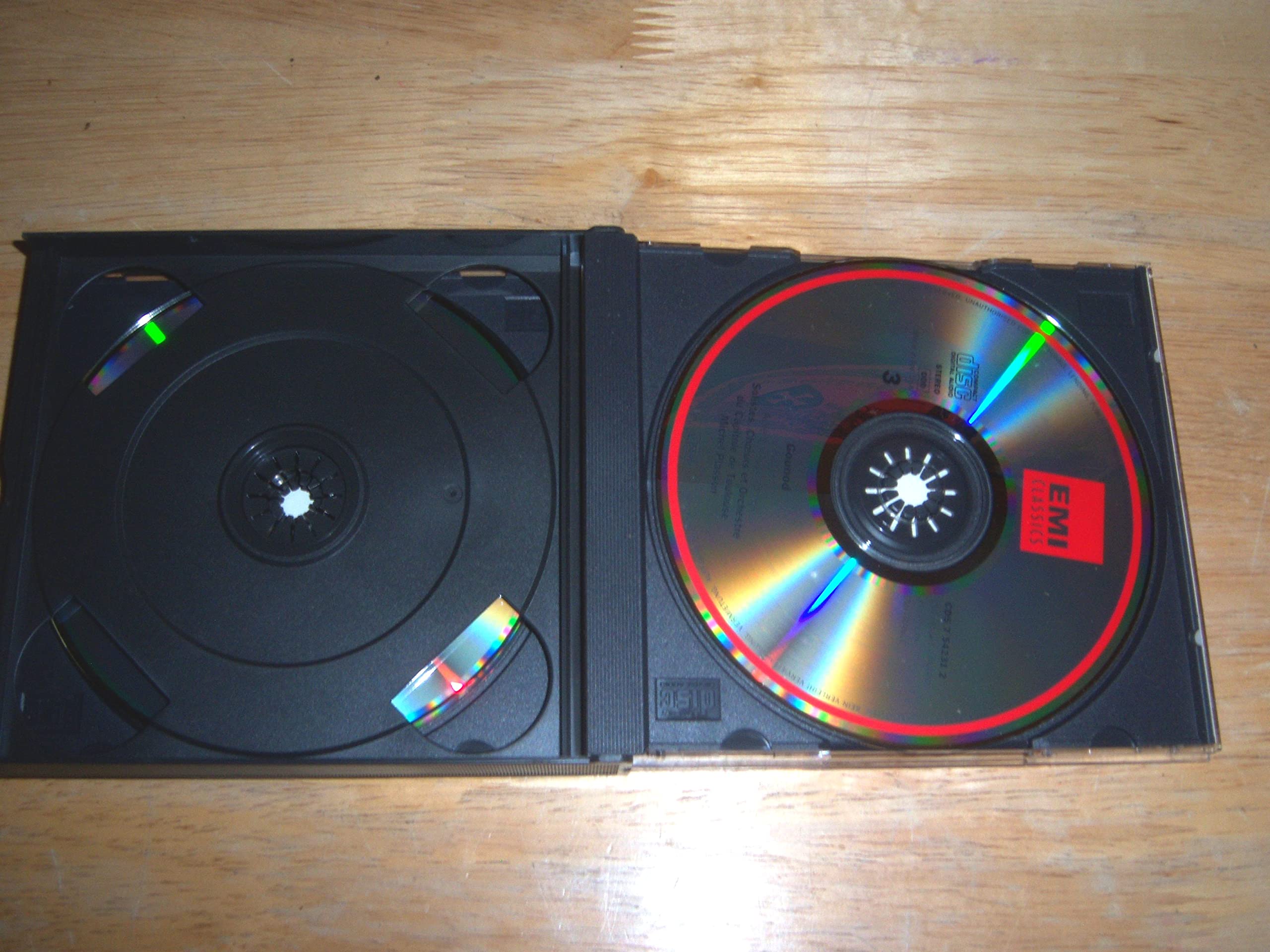
P**H
A live Performance of Charles Gounod Faust , a very important Dokument.
This live Performance of Charles Gounod (1819-1893) Faust from Naples is a very important Dokument, butUnfortunatetly it Suffers from all Kind Background noises. The cast is excellent, lead by Boris Christoff (1914-1993) in the Role of Mephistofeles. As expected Christoff is in great Voice a carbon copy of His two famous Studio recordings of Faust conducted by Andre Cluytens. The famous Italian Tenor Ferruccio Tagliavini (1913-1995) in the Role of Faust is also in excellent Voice, particularly in the Long duet with soprano Anna Maria Rovere (1929-1998) As Marguerite in Act Three and in the Final Trio in Act Five. Her Voice is some what less Beautiful As HisBut her Conception of the Role is excellent, and she is completely involved. The well known Baritone Enzo Mascherini is Not at His Best . In the famous Act two aria"Avant de quitter Ces lieux " he is experiencing a shortage of breath, which Leads to broken phrases and Complete Lack of presence. His singing is much better in the Death Scene " E Coute -moi bien, Marguerite" . The Minor Parts are well sung by experienced Italian Artists . The excellentChorus and Orchestra of San Carlo Opera in Naples is conducted by the famous Maestro Gabriele Santini. The Performance despite beeing sung in Italian is outstanding and deserves Five Stars easily , but the Sound particularlyAt the beginning of CD 1 is poor and deserves barely Three Stars , therefore I believe that I will Be honest by awording Four Stars for the Recording. Recommended to all who Love live Performances.
A**Y
My new favorite for Faust.
These singers in this Faust are about as wonderful as it gets. They are literally legends come together for greatness. Jean Morel was a noted conductor in the French repertoire. Here he leads a tight (and sometimes fleet) performance from the Met. Jussi Bjoerling, who never recorded the opera commercially, is every bit the legend we expect. And his French is clearly enunciated. Cesare Siepi owned Mephistopheles at the Met for the entire time he sang there. That creamy bass, the pointed diction, and the personality are just what made him legendary. Robert Merrill also never recorded Valentin commercially, but he sang it a lot. No worries here. His voice was at it peak, and that says it all. Elizabeth Soderstrom as Marguerite seemed, on paper, odd to me. But she is possibly the best one now on record. The rest of the cast were A-list, too.For those who want to know these things the scene between Marguerite and Siebel is cut. The Walpurgis Night is there, but shortened - no ballet or aria for Faust there. Highlights? The whole thing. Buy it while you can.
D**F
Buy it
You have the greatest Faust of all time in his last broadcast from the Met. The other singers are excellent and the orchestra is OK. A must have for any lover of great singing.
R**E
Five Stars
great
C**D
Five Stars
Great thanks
H**T
A good modern Faust, with impressive singing
If you look over the reviews for the various Faust sets, too many people call their personal favorite "the best ever." By any objective standard we haven't had a thoroughly excellent Faust on disc, with only three serious competitors over many decades. Those are the pre-LP historic Beecham performance, the 1958 Cluytens on EMI with de los Angeles, Gedda, and Christoff (a stereo remake of the same cast and conductor in mono from 1953), and the 1987 Colin Davis version on Philips that is excellent in every way except for a tepid Te Kanawa as Marguerite and a somewhat unstylish Faust in Araiza. Those are the basic facts one must work with, unpalatable as they may be.This set under Michel Plasson and his Toulouse Opera forces is a decent contender, thoroughly French in style--even if none of the lead roles are taken by French singers (Van Dam is Belgian)--and dramatically convincing. But it's far from ideal. To begin with, Faust is a very long, very uneven work, and only the best conducting, or a good deal of cutting, enables a listener to hold interest over the long haul. Beecham prfers the cuts, Davis tries for extended drama. Plasson is merely good, rating higher than his Teldec rival, Carlo Rizzi, but not as high as Cluytens, much less Davis. Also, it's fairly obvious that his orchestra and chorus aren't first-rate. The final, fatal flaw is Plasson's preference for slow, loving tempos, the last thing this wandering opera needs.As for the singers, they make the show. Cheryl Studer was a miraculous artist in her brief heyday, a soprano capable of singing Wagner, Strauss, Mozart, and Gounod. It's amazing to think that a voice suited to Pamina, Elsa, Salome, and Marguerite could exist in the same person. She makes a musical, touching, and often vocally thrilling heroine, the best in modern times since de los Angeles. Her Faust, Richard Leach, makes up in style and ardor what he lacks in voice (his attractive lyric tenor is innately small), and dramatic fervor carries him a long way. Jose van Dam would have been a perfect Mephisto ten years before this rrecording was made (1994, I believe), and he's still a great stylist, but the voice itself had thickened and blurred. Even so, he is preferable to almost any other modern Devil, excepting the ultra-hammy but terrifying Boris Christoff for Cluytens. I must admit to being disappointed by Thomas Hampson's one-size-fits-all Valentin, who doesn't sound remotely like a loving brother or a soldier, either.I've tried to offer a realistic appraisal of this enjoyable Faust, which makes a good standby while we wait for the ideal performance. I'd place it well below the Davis and just below the Cluytens.
M**O
Lush conducting sparkles from within. Very delicate , very French interpretation.
Lovingly conducted with rich lush singing in luxurious warm acoustics. Great attention paid to orchestral details and poetics of Gounod's orchestration . A gentle almost benevolent interpretation done with loving kindness. The singing by Leech (Faust) and Studer (Margarite) is exquistely French and of innate fluidity. French Army Chorus sings the Soldier's Chorus. To be compared with the more raw and fierce interpretation by Pretre with Freni and Domingo. The Cluytens version with Victoria de Los Angeles is almost a chamberlike performance with dated ADD sound and flat acoustics. The Rizzi version by the Welsh Opera seems overrated to me and leaves me cold. I recommend this version together with the Pretre version with Freni and Domingo as well as the very dated but beauiful DVD with Scotto and Kraus.
M**O
Un Faust di poco rilievo
1953 - Brillant riprende questa ormai datata incisione del Faust di Gounod, famosa per il Cast di grido e per la bacchetta di Cluytens. Posso essere d' accordo sulla bellezza della voce di Gedda (giovane e vocalmente adatto al personaggio Faust) come pure quella di Margherita interpretata dalla de los Angeles.Bravo il Valentino di Borthayre. Buona ma non eccellente l' Orchestra dell' Opera Nazionale di Parigi che diretta dal direttore belga da il meglio di se stessa. Purtroppo il tutto è rovinato dalla presenza di Boris Christoff (Mefistofele) in una delle sue peggiori interpretazioni: voce stentorea, greve, sgarbata, esageratamente verista, piena di asmatiche inflessioni, troppo istrionica, troppo tutto. Il canto francese è ben altra cosa al confronto di questa indecorosa interpretazione, forse al di là degli Urali poteva andare bene per un pubblico di sordastri ...... Delle volte mi chiedo come abbiano fatto a formare Cast Lirici con cantanti di tal genere: forse allora gli amici degli amici avevano un certo peso anche a Parigi !
V**Y
Musikalische Legende
Charles Gounods 1859 uraufgeführte Oper Faust (in Deutschland früher meist "Margarethe") gehört bis heute zu den beliebtesten französischen Opern. Die Firma EMI hat in ihrer langen Geschichte mehr Aufnahmen der Oper veröffentlicht als jedes andere Unternehmen.Darunter nehmen zwei Aufnahmen aus den 50er Jahren eine Sonderstellung ein, gelten allgemein als die insgesamt gelungensten:1953 (mono) und 1958 (stereo) nahm der Dirigent André Cluytens die Oper zweimal mit denselben Hauptdarstellern und einem im übrigen jeweils rein französischen Ensemble auf. Die hier veröffentlichte Aufnahme ist die ältere, die zwar klangtechnisch schlechter ist als die Reprise - die lauteren Passagen sind etwas übersteuert und scheppern -, aber im übrigen m. E. sogar leicht überlegen:Die Titelrolle singt der junge Nicolai Gedda mit einer unnachahmlichen Eleganz und Stilsicherheit - seine Stimme hatte gerade in dieser Zeit einen feinen Perlmuttschimmer, der ihn zu einem sehr glaubwürdigen Liebhaber machte. Im Vergleich zur späteren Aufnahme nimmt er auch noch weniger Rücksicht auf seine Stimme - für die der Faust durchaus eine Grenzpartie war -, was gerade im stimmliche Verhältnis zu der gewaltigen Stimme des Méphistopheles besser ist.Dieser wird in beiden Aufnahmen von dem bulgarischen Bass Boris Christoff als wahrhaft dämonischer und doch majestätischer Teufel verkörpert. Selten ist das Rondo vom goldenen Kalb sarkastischer gesungen worden. Den starken Akzent des Sänger nimmt man als Merkmal seiner Fremdheit gerne hin.Die Marguerite schließlich singt die Spanierin Victoria de los Angeles weder als Primadonna noch als bloße Unschuld vom Lande, sondern als junge Frau mit Herz. Sie schafft es auch, das Leid, den Absturz der Figur glaubhaft darzustellen mit ihrer warmen, weichen Stimme.Sämtliche Nebenrollen sind ausnahmslos mit muttersprachlichen Sängern und damit natürlich sehr stilsicher besetzt, größtenteils sogar hervorragend: Das gilt insbesondere für den majestätischen Valentin von Jean Borthayre und den jungenhaft-unschuldigen Siébel von Martha Angelici.Und angesichts aller dieser Vorteile nehme ich dann gern auch etwas Scheppern in Kauf, gerade bei diesem günstigen Preis. Wer größeren Wert auf die bessere Technik legt, ist mit der Stereoaufnahme besser bedient. 1958 (stereo)
J**H
Recording from the past
Great to hear singers of the calibre of Nicolai Gedda, de los Angeles and Christoff. Digital remastering of this 1953 recording is pretty good.
C**Y
Good Value
Bought the CD set having just watched a production of Faust. There are a number of different variations of Faust which not always have all the pieces or the order of pieces are altered. Was pleased this version matched the production.Quality was good.
Trustpilot
1 week ago
2 days ago